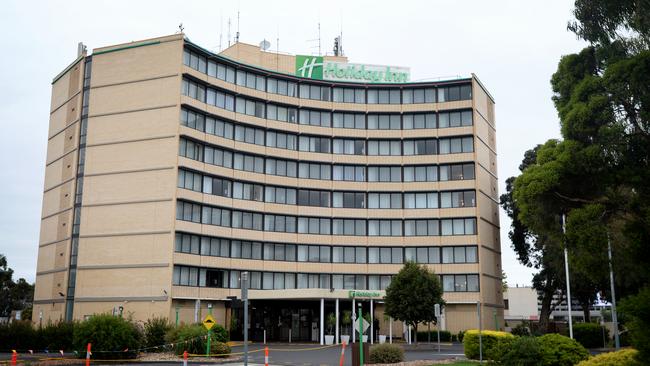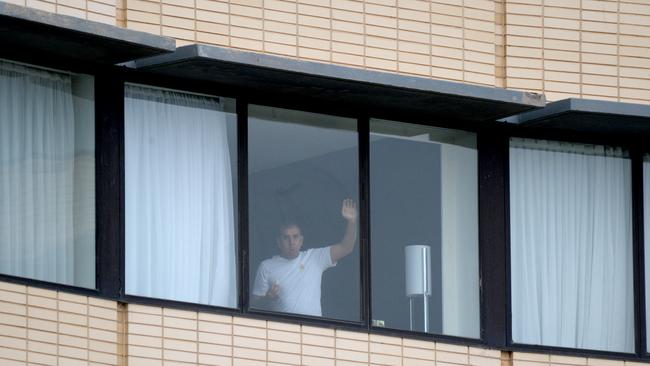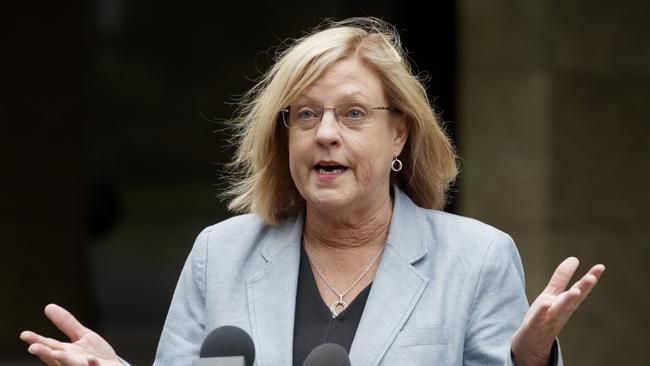Hotel workers to be paid for off-duty tests
As debate over Victoria’s hotel quarantine program continues, the government is confident this one change will keep the community safe.
Coronavirus
Don't miss out on the headlines from Coronavirus. Followed categories will be added to My News.
Hotel quarantine workers will be paid to undergo coronavirus tests on their days off to help protect Victorians from more transmissions in the program.
As debate intensified over whether inner-city hotels should be used to quarantine international arrivals, Emergency Services Minister Lisa Neville backed the program to remain near major hospitals.
She said workers would be tested on their days off on a voluntary basis until officials worked out the legal arrangements to make it mandatory.
“People on their days off, once you ask them to get a test, that becomes a work day,” Ms Neville said.
“Inside their contracts they are required to do their on-duty testing. We are now working through those issues.”
While several leading epidemiologists called for quarantine to move to regional or remote areas, Ms Neville said staff would still need to interact with guests regardless of whether they were outside big population centres.


Two to three quarantine residents, on average, are assessed daily in The Alfred’s emergency department, mainly for infections, pain management, chronic disease support and mental health issues.
Australia’s expert medical panel has stood by the length of the nation’s two-week quarantine, even after a NSW resident tested positive to COVID two days after leaving a hotel.
Prime Minister Scott Morrison said the state and federal governments would move towards lengthy quarantine if recommended by the panel.
“But at this stage, that is not the advice of the medical experts,” Mr Morrison said.
Doherty Institute director of epidemiology Jodie McVernon said Victorians needed to be “measured” in their reaction to recent hotel quarantine infections.
She said transmission was always likely in the quarantine system, regardless of how well it was managed.

“This is the new normal, this is reality. We are seeing maturation of these responses and how we deal with these testing conditions over time,” Prof McVernon said.
“We cannot be totally cut off in the world and we are in the amazingly fortunate position of having no community transmission, so we have to be very vigilant about those arrivals and how they are housed.”
Prof McVernon said Victoria was well-placed to cope with outbreaks, with acceptance of social distancing, masks and other measures that became second nature throughout the state’s second wave.




